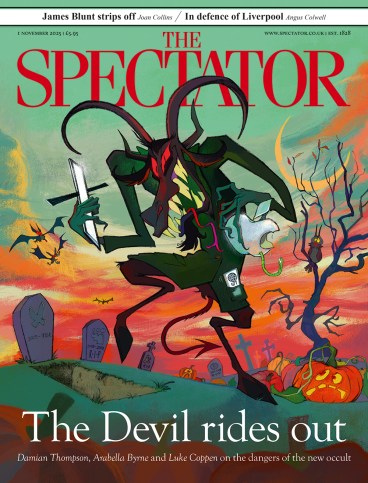
I can’t watch films anymore without looking at my phone. If I watch a film on my laptop, I’ll be scrolling throughout – reading Wikipedia, checking group chats, looking up filming locations on IMDb. To properly watch a film, I have to take myself to the cinema. Luckily, and perhaps as a direct result of our scrolling habits, London’s indie cinema scene is having an ascendent moment. I recently ventured down to Peckham for two screenings at the Ivy House, a pub with a cinema room where films play on a stained pull-down projection screen. Both screenings were organised by Deeper Into Movies, which puts on arthouse films at cinemas across London.
On both occasions, they were screening a niche American indie film that hasn’t had a UK release. Eugene Kotlyarenko’s The Code and Peter Vack’s www.RachelOrmont.com, both 2024, have emerged from Dimes Square, the New York downtown scene known for alt lit readings, reactionary podcasts, Thiel-funded parties and an argot that’s downstream of Instagram meme accounts. The Code was introduced by Kotlyarenko in a pre-recorded video, where he said that the film was made for and by people whose brains have been rotted by the internet. His previous films are similarly online-brained; his 2020 found-footage horror Spree centres on a ride-share driver who murders passengers in an attempt to go viral on his vlogging livestream channel. The constant barrage of on-screen information, busier in The Code than in any of his previous offerings, is blissfully engaging for those of us with fried dopamine receptors and five-second attention spans.
Like Spree, his newest film makes use of varied and unorthodox camera set-ups: iPhones, dash-cams, home-security CCTV, spy cams, hidden camera-glasses, FaceTime, Zoom meetings (it’s set during the pandemic), screen recording and secretly installed apps that record via the front camera when the phone is in use. It follows Celine (Dasha Nekrasova) and her boyfriend Jay (Peter Vack) as she films a documentary about Covid-19 and their relationship, which is marred by impotence since Jay’s #MeToo-style cancellation and subsequent fear of women. She posts TikTok videos (username: inceline) of herself spiking his food with Viagra. He, afraid her documentary is a means of gathering receipts for another cancellation, plants spy cams around the house and tries to bait her into saying the N-word on camera. Memes flash up on screen. The film rewards a familiarity with the vocabulary of extremely online zillennials. But its structure follows the recognisable beats of a romcom: a couple struggle with intimacy become increasingly insecure and anxious around each other, almost separate and then realise the depth of their connection, reconciling in a surprisingly moving sex scene in the Mojave Desert.
The internet poses a difficulty for filmmakers: how to make a film about people who communicate primarily via messages using meme-based signifiers indecipherable to those outside their particular corner of the internet? The risk, on the one hand, is of making a film which is boring and alienating to anyone beyond an already defined scene and, on the other, of ducking the challenge and failing to represent contemporary life as it is. The Code accomplishes a difficult task, making a film where the internet isn’t a cursory addition but central to the everyday life and mentalities of its characters. Jay and Celine are psychological products of the internet, their sex lives and emotional intimacy and paranoia shaped on a deep level by their online engagement. It’s a rare film that manages to depict the internal life of the terminally online.
Peter Vack’s www.RachelOrmont.com is a less traditional film. It opens with Chloe Cherry, of Euphoria – and porn – fame, selling her baby daughter, Rachel, as well as cloning rights to her own body, to the North American Assessment and Advertising Agency (NAAAA). It then follows Rachel as an adult (played by Vack’s sister, Betsey Brown), now aged 31. She has come out of NAAAA employment having seemingly had no real-life contact with other human beings. She lives in a filthy room assessing performances by Mommy 6.0 (one of her mother’s clones), talking to an AI chatbot and masturbating to a Mommy 6.0 body pillow. When she begins to think that Mommy 6.0 is trying to contact her, she is moved to another assignment – a green-screen room where she is forced to masturbate with a knock-off Hitachi magic wand for online advertisements while wearing a shock collar that electrocutes her whenever she tries to stop. After destroying the room, she is moved to content production and given adoptive parents and a sister, Darci (Dasha Nekrasova), in what they call a ‘hype house family’ or family of influencers.
Memes are by nature transient. The longer time-scales of cinema mean that Vack’s film already feels dated
The live audience of Darci’s show, simulating an online comment section, is a gallery of Dimes Square It-girls, podcasters and neo-reactionary bloggers: Curtis Yarvin, Ivy Wolk (who also stars in The Code), Honor Levy and Pariah the Doll. The stage is decorated with Milady profile pictures and the dialogue consists of quips familiar to anyone who’s listened to Red Scare.
Vack’s film might have been an effective satire – there are interesting ideas here about the tech industry’s tendency to monetise every area of social life; about the disintegration of the family and parasocial relationships with online strangers and AI – but it loses its bite in a torrent of indulgent references. Memes are by nature transient. The longer time-scales of cinema mean that Vack’s film already feels dated. Since Trump’s win, the It-girls have renounced the post-ironic fascist references that litter www.RachelOrmont.com. References to Urbit planeteers feel solidly 2022.
In 2025, zoomers are getting dumb phones and embracing IRL life. A desire for substance is overtaking the vacuous post-ironic referentiality of the Biden years. Peter Vack’s film feels like a time capsule, a monument to a culture that no longer exists. The Code, meanwhile, feels contemporary. Despite being set during the pandemic, it deals with the question that has haunted the post-Covid years: given the bewildering speed of events and cultural change, the way that everything we know can be uprooted faster than we can come to terms with, how do we maintain the things that have always mattered – love, trust, loyalty?








Comments